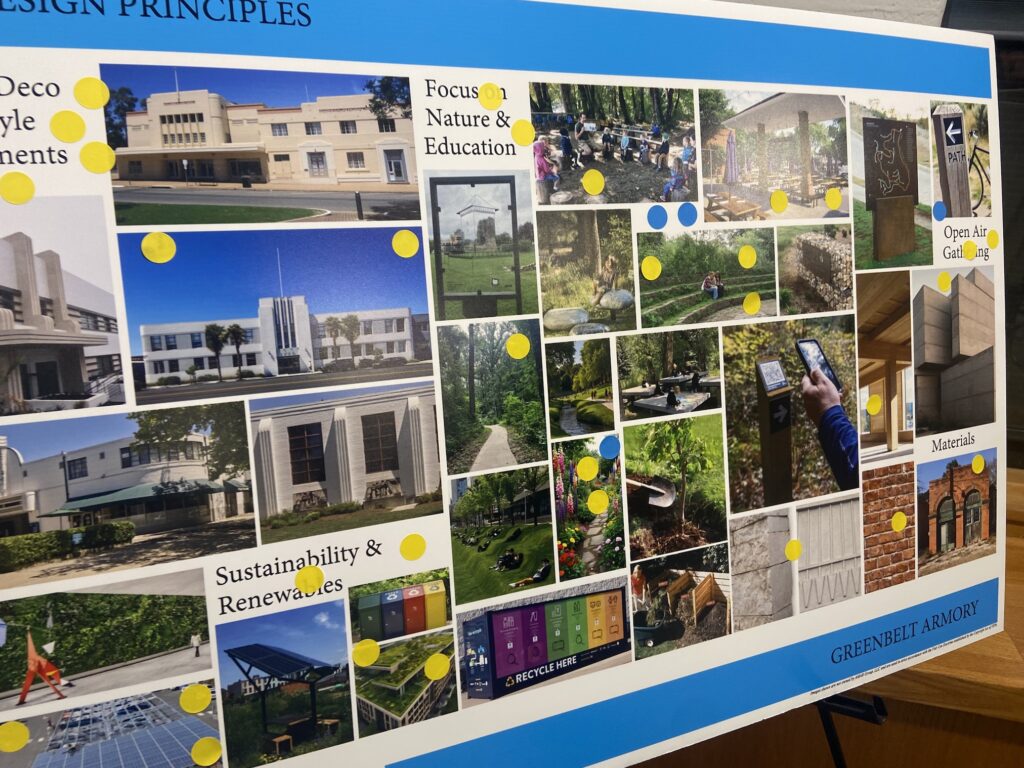For the past five years, contractors have been busy throughout the Greenbelt Homes Inc. (GHI) housing cooperative, installing various components of the community-wide Homes Improvement Program (HIP). Windows, entry doors and baseboard heaters have been replaced in nearly all of the 1600 housing units, and all the frame units are sporting new siding. The work is scheduled to be finished by mid-April, weather permitting.
These upgrades were paid for by GHI’s replacement reserves fund. The fund was established following the first communitywide rehabilitation project in the early 1980s and grew through earmarked contributions from the co-op fees that GHI members pay each month. Although the replacements were considered mandatory, member requests to keep the original doors and baseboard heaters were approved, and member-installed windows or casement windows installed in the 1980s rehab were not replaced if they were in good condition and met HIP standards. Also, insulation, an air seal and a vapor barrier were added to the crawlspaces beneath the row houses, paid by unreserved operating funds and by member co-op fees apportioned to repay a loan taken by GHI for crawlspace improvements.
Optional Improvements
A plethora of optional improvements were offered that members could have done at their own expense but at ‘bulk purchase’ prices negotiated by GHI and by contractors hired, scheduled and overseen by GHI. The options available varied among the three basic building types – block, brick façade and frame – and included casement windows instead of the default sliders, different entry door features (mail slot, peephole, etc.), new storm doors, bathroom exhaust fans, digital thermostats and additional insulation, for under siding or in attics. The most expensive member option, but probably the most popular, was the mini-split heat pump, which was installed in nearly 500 homes, according to HIP Director Joe Wiehagen. The ductless mini-split system efficiently provides air conditioning and supplemental heat and could easily be retrofit to the small GHI homes without taking up indoor space. Previously, GHI homes were cooled mostly by window or through-the-wall air conditioners, although some members had installed heat pumps before HIP started.
Pilot Program
Before embarking on the community-wide project, GHI conducted a multi-year pilot program designed by the GHI Buildings Committee to evaluate options to improve energy efficiency and comfort in the homes. The pilot program, conducted on seven rows of houses (28 units total, in each of the three building types), also aimed to provide GHI with information on the cost of upgrades, the energy savings they would bring, the payback periods for the upgrades and the impact on residents while the work was being done. Through a grant from the Department of Energy, the National Association of Home Builders-Research Center (NAHB-RC, now the Home Innovation Research Labs) provided technical assistance with the design of the pilot program and evaluation of the results.
HIP Begins
Beginning in 2016, the member-approved upgrades were rolled out to the community, under the direction of Wiehagen, who had overseen the pilot program when he was affiliated with NAHB-RC. In each of the five years of HIP, roughly one-fifth of the homes in each of the three building types were randomly chosen to be worked on; members learned in Spring 2016 which year their court was scheduled for work. Installations generally started in April and finished in December, with members notified 14 days in advance of work scheduled on their unit and updated regularly of any schedule changes. Contractors were generally the same though the contracts were re-bid and approved each year.
Covid-related Delays
Work on HIP’s final year was gearing up to begin when the pandemic shut things down. Much of the work is done inside homes, requiring that work crews enter and move from room to room. According to Wiehagen, the start of work in 2020 was delayed for about 10 weeks while Covid-19 procedures were developed for work crews and residents. There was an additional six-week delay because procurement of parts or components, especially windows, was slowed by Covid-19 restrictions, causing the work to continue into 2021.
Member Satisfaction
Wiehagen noted that “a project this large and involving so many homes and different components will have complaints. Common issues were cleanup, yard damage due to siding work, and interior trim damage, especially around doors. The age of the homes and space limitations were a particular challenge. GHI’s maintenance department was invaluable in helping to resolve many of these issues and the project could not have been done at this pace and scope without them.”
But Wiehagen gets high marks from GHI members for his efficient management of HIP and his willingness to address and accommodate concerns to the extent possible. Members have generally been satisfied with the upgrades and how the work was carried out. And they greatly appreciate that their homes are now both more comfortable and more energy efficient, and will be for years – perhaps decades – to come.



